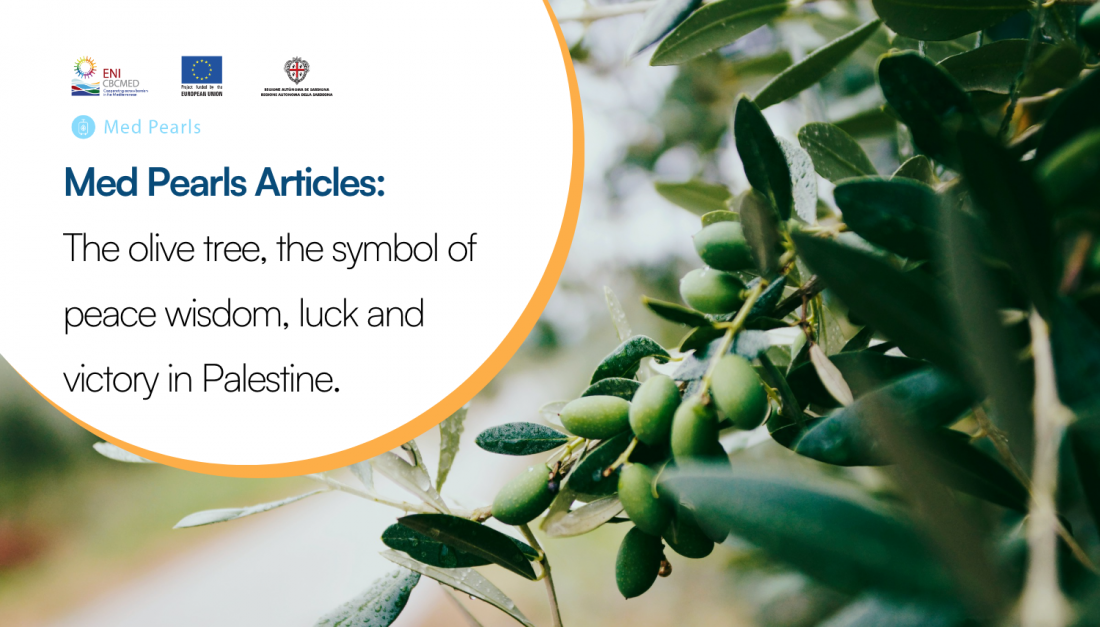Med Pearls articles: The olive tree, the Palestinian symbol of peace wisdom, fertility, prosperity, luck and victory.

Discover the rich culinary heritage of Palestine through its olives! From pickled vegetables to smoked meat, olives play a crucial role in the Palestinian diet. With a history dating back to 4000 BC, Palestinian olives are renowned for their unique taste and quality.
In 1500 AD, Palestinian cuisine was simple and humble, especially for the poor. Peasant meals consisted of a small piece of bread with onion, olives or a bit of cheese or salted meat, as fresh meat was reserved for feast days. However, food preservation allowed people to enjoy a variety of flavors year-round, including pickled vegetables, smoked meat, dried pulses, and sweets. The Ottoman and Arabic influences started to be felt in the Northern shores of the Mediterranean at that time. Fresh fish and seafood were available in the islands and along the coasts, but they weren't cheap. Household ovens were rare, and many families baked “ash-bread” in the embers of the fireplace.
In this context, the olive tree holds a special place in the Palestinian culture. It has been a symbol of peace, wisdom, fertility, prosperity, luck, and even victory. What's more, in Jewish and Christian tradition, the olive tree represents peace; it was an olive branch that the dove brought to Noah as a sign that the Flood was receding, and according to legend, Christ's cross was made of olive and cedar wood. In Islam, the olive tree is central and considered a holy (Mubarak) tree. The Prophet urged his followers to “Eat olive oil and massage it over your bodies”.
Olives are indigenous to the Mediterranean, and they were first cultivated in the area of Palestine around 4000 BC. Palestinian people developed a wide range of olive products, such as olive oil, table olives, olive paste, and olive tree wood. They pickled and conserved olives in salt, brine, or vinegar and flavored them with fennel, coriander, cumin, mastic, and mint. To grow, the olive trees required a dry season to develop its oil content and a cool winter to rest. Hence making Palestine an ideal location. Furthermore, olive oil distribution followed ancient schemes: it was stored in special jars, loaded onto vessels, and led to major urban centers or wherever there was an increase in demand. In the years of the Ottoman Empire, a further rise of olive oil trade occurred, and maritime transportation was developed, facilitating the sea routes from the Aegean Sea to Western Europe.
Today, Palestinian olives are still an important part of the Mediterranean diet, and the Med Pearls project invites visitors to discover the cultural and gastronomic heritage of Palestine through its olive production. From the olive groves to the processing facilities, visitors can experience the whole process of making olive oil and taste the unique flavors of Palestinian cuisine.
Visit Palestine with the Med Pearls project to explore the different varieties of olive trees, taste the local olive products, and learn about the traditional olive cultivation methods. There is a large number of Palestinian olive varieties both for the production of oil and table olives. So, experience the historical and cultural significance of olives in Palestine, taste their unique flavor, and bring a piece of Palestinian heritage home with you. Join us on the Med Pearls project to explore the world of Palestinian olives!
Check regularly: www.enicbcmed.eu/projects/med-pearls
And our social media:
@MedPearlsProj - Med Pearls Project (Facebook) - medpearlsproject (Instagram)









